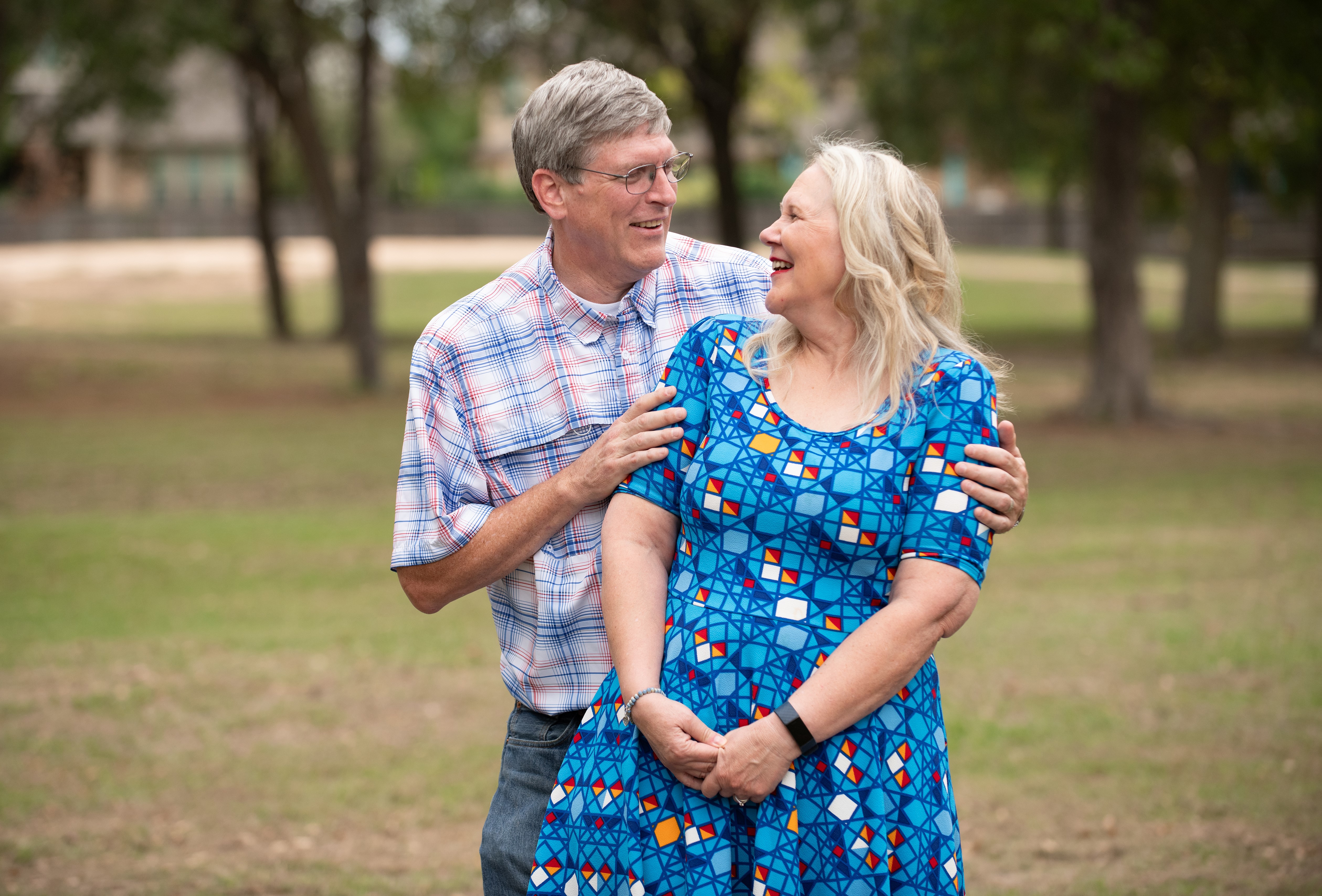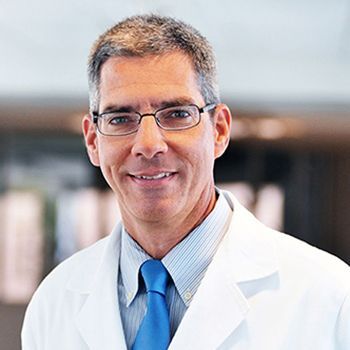
Back in action
Tod Taylor’s office is filled with pictures of the planes he flies, quotes that inspire him, and a map dotted with pushpins to indicate the status of various personal and professional projects. He embraces challenges and lives life to its fullest.
So it’s hard to imagine him so exhausted he can barely navigate the aisles of a grocery store.
Extreme fatigue, however, was the first indication that something might be seriously wrong with the active 62-year-old husband and father. His brother had asked if he would travel to Fort Worth to watch their aging parents for a couple of weeks, and Taylor happily agreed. He had remote work flexibility and looked forward to spending time with his mom and dad, shuttling them to doctors’ appointments and helping around the house.
Not long after arriving at their home he noticed a significantly low energy level and change in his bowel movements. At first he shrugged off his symptoms. He had just passed a complete physical with flying colors and couldn’t imagine anything was wrong. But after an outing to the supermarket with his parents left him clammy and shaking, he agreed a trip to the doctor was in order.
He headed to urgent care, where a nurse noted he looked pale and took some blood.
“They came in about five minutes later and said ‘this is no longer urgent care. This is an emergency,’” he recalls.
Taylor’s hemoglobin level was dangerously low, and he was transported by ambulance to a hospital in Arlington where he received three units of blood while the staff begin trying to unravel the mystery of his rapidly deteriorating condition – starting with an endoscopy to determine the cause of his internal bleeding.
Certain that he must have a bleeding ulcer, Taylor was stunned to hear the procedure had instead revealed something else – a tumor on the wall of his digestive tract. Without a specialist and the advanced equipment needed to biopsy the tumor or see it more clearly, there was no way to know if the mass was cancerous. His care options were limited in Arlington, and he decided to travel back to Houston for a second opinion with his own gastroenterologist, who ultimately referred him to Dr. Bill Fisher at Baylor St. Luke’s Medical Center.
Fisher, an internationally known leader in pancreatic surgery at the Dan L Duncan Comprehensive Cancer Center at Baylor St. Luke’s, was able to diagnose Taylor with a gastrointestinal stromal tumor. While these tumors are not typically cancerous, they can grow rapidly and cause dangerous obstructions and serious internal bleeding. Fisher knew surgery to remove the mass was needed – quickly.
“The tumor was in a tricky spot,” he says. “When these tumors originate on the wall of the duodenum, they can be simple to remove. Unfortunately his was on the pancreas side. I was able to dissect the duodenum out from behind two major blood vessels and peel it off the edge of the pancreas – saving almost all of the organ.”
Within a couple of weeks of his procedure, Taylor was back at work, full of energy, and planning a family vacation. What has stuck with him though, is the compassion and responsiveness of his care team at Baylor St. Luke’s Medical Center.
“For a few weeks I thought I was facing a devastating diagnosis, and that was rough for me and my wife,” he says. “I’m so grateful to Dr. Fisher for giving me my life back.”
An early calling

Dr. Bill Fisher decided at a young age that he wanted to be a doctor, having lost his father at 13. He also remembers clearly how surgery became his calling. He was working on his undergraduate degree at Wittenberg University, where he also played basketball. The team trainer was a surgeon and knowing Fisher’s interest in medicine, he invited the young student to scrub in for a surgical procedure.
“The minute I scrubbed in, I was like, whoa, this is what I'm doing,” he laughs. “This is what I’m doing. And from that point forward, everything was surgery, surgery, surgery. When I got into medical school, my favorite class was anatomy. I studied anatomy more than I needed to know to pass anatomy. I just loved it.”
Today, Fisher is an internationally known leader and researcher in pancreatic surgery with a slew of honors, awards, and publications.
He is quick to answer when asked what sets Baylor St. Luke’s apart when it comes to cancer care. At the hospital’s Dan L Duncan Comprehensive Cancer Center, he says, a patient is more than just a number – they are part of the St. Luke’s Health family. The center’s skilled, board-certified, Baylor College of Medicine oncologists take a comprehensive approach to each person they see.
Patients don’t have to travel across town from one appointment to another, creating fragmented, frustrating care during an already difficult time. Rather, each person gets a compassionate, patient-centric approach.
“We are all literally sitting together looking at your x-rays together and having a discussion about you and what would be best for you,” he says. “Our surgeons are sophisticated, and we work as a team so that we’re up on all the latest protocols.”
Fisher says Baylor St. Luke’s leads the way, in particular, when it comes to pancreatic cancer, noting that the Cancer Center has had more clinical trials available for pancreas tumors than MD Anderson. “We also offer clinical trials you can’t typically get anywhere else in the region,” he says.
He is especially proud of his colleagues.
“I would put our surgeons up against any surgeon in any of these hospitals in the Texas Medical Center or anywhere in the world,” he says. “We have a tremendous amount of talent and not just clinically but in research as well. I look at the people around me and just think, wow, it's great to be here because I'm impressed. Tremendously impressed by the talent that's around us.”